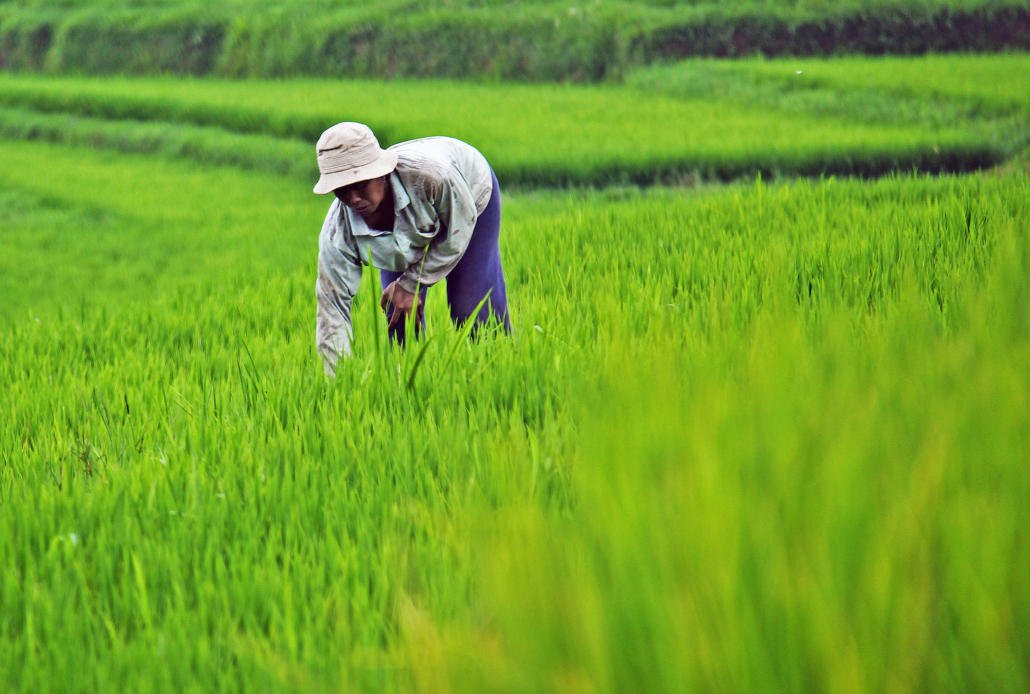How Technology Improves Rice Production Worldwide

Rice is one of the world’s most popular foods. It is a culturally significant staple in cuisines across the world, from Asia to Africa to the Americas. In fact, rice comprises at least 20% of daily calorie intake for more than 3.5 billion people. Rice is also enticing, especially for the impoverished, for its versatility, nutritional value and affordability to produce and buy. To continue supplying this necessary meal staple for millions of people worldwide, it is imperative that rice farming is efficient and high-yielding. Here are several efforts demonstrating how technology improves rice production.
Crop Manager
The International Rice Research Institute (IRRI) is a global research organization that discovers and implements solutions for rice farming and production to help end world hunger. One such initiative is the development of a useful rice production product called Crop Manager. Crop Manager is a computer program designed to assist rice farmers in tasks like nutrient management and fertilizer selection.
Crop Manager is especially useful for impoverished farmers due to its simple information delivery method. The program conveys information to farmers quickly and concisely via computer printouts and SMS text messages. Thus, even farmers with only basic technologies like cell phones or computers can access this advanced data and improve their crop yields. Crop Manager is currently active in Bangladesh, India, Indonesia and the Philippines.
Biofortification
The IRRI has also committed to improving rice itself. To do this, the organization has begun researching and implementing biofortification: genetic modification of a crop to improve its nutritional value. With this method, grains have been genetically modified to provide greater amounts of nutrients like zinc and iron. This innovation is incredibly helpful for those consuming rice as a major component of their diet. More nutrient-dense rice can help poor families prevent diet-induced diseases like iron deficiency anemia, an illness that causing extreme weakness due to low red blood cell counts.
Hybrid Gains
Another organization demonstrating how technology improves rice production is RiceTec. RiceTec is an American company committed to modernizing rice production worldwide. One specific effort RiceTec has organized is modified disease-resistant rice grains. These hybrid grains are more formidable against diseases that typically kill rice crops, ensuring crop yields remain high.
Other hybrid grains developed by RiceTec allow farmers to increase the quantity of rice in their fields, as well as provide grains with stronger straws and improved grain retention. The implications of these innovations are massive; by introducing these hybrid grains into rice fields worldwide, people relying on rice as a primary component of their diets will become more able to feed themselves and their families. For farmers, selling more of the crop will provide greater income and improve their quality of life.
Furthermore, some hybrid rice grains have the added benefit of using less arable land to provide comparable—if not more—crop yield. In 2009, for example, China reduced its rice-growing land use by 14% while increasing production by 44.1%. With the increased use of hybrid grains worldwide, the sustainability of rice production will continue to improve. Additionally, reducing arable land use will feed more with minimal strain on the environment.
Moving Forward
Modern farming and wealthy countries have long used technology to improve their crops. Developments ranging from crop management software to higher nutrition in crops themselves to hybrid grains have forever changed the practice of farming. By delivering this technology to the world’s poor, people relying on rice as a staple will have the opportunity to succeed both in terms of crop viability and overall quality of life. As technology continues improving rice production, the world comes one step closer to eradicating food insecurity.
– Domenic Scalora
Photo: Flickr
